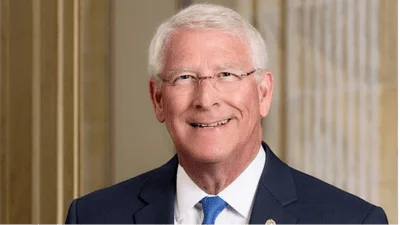WASHINGTON - The House Appropriations Committee today released the draft fiscal year 2021 Interior, Environment, and Related Agencies funding bill, which will be considered in subcommittee tomorrow. The legislation includes funding for programs within the Department of the Interior, the Environmental Protection Agency, and other related agencies, including the Indian Health Service.
In total, the draft bill includes $36.76 billion in regular appropriations, an increase of $771 million above the FY 2020 enacted level, and $5.11 billion over the President’s 2021 request. Additionally, the bill includes $15 billion in emergency supplemental appropriations for investments in critical infrastructure. There is also an additional $2.35 billion of funding provided under the fire suppression cap adjustment.
“Last year, the Democratic Majority in the House was finally able to secure significant new investments in environmental protection and land conservation, after years of budget cuts and neglect under a Republican Congress and the Trump administration. For FY 2021, House Democrats are building upon last year’s successes to advance the priorities of the American people - ensuring we have clean air and water to protect our communities’ health, protecting our public lands and endangered species, and taking meaningful actions to address climate change," said House Appropriations Subcommittee on Interior, Environment, and Related Agencies Chair Betty McCollum. “House Democrats are committed to ensuring that ALL Americans have fair and equal access to the opportunities that allow them to pursue their dreams, including honoring the federal government’s commitments to our tribal partners by investing in education, infrastructure, and health care in Indian Country. Finally, House Democrats have been tirelessly working to help American families overcome the ongoing difficulties posed by the coronavirus pandemic and recognizing the need to root out the systemic racism and inequities in our society. This bill faces these challenges head on."
“With this bill, we reject the Trump administration’s pandering to the fossil fuel industry and disregard for the environment and public lands. Instead, we increase funding to preserve our landscapes, protect endangered species, and help prevent the worst impacts of climate change," said House Appropriations Committee Chairwoman Nita M. Lowey. “I am also very proud that this legislation honors our obligations to Native American communities by investing in education, housing, public safety, and health care. This bill will protect our environment and the health of our families, not line the pockets of industry."
In FY 2021, Land and Water Conservation Fund (LWCF) allocations will shift from discretionary to mandatory appropriations. For clarity, comparisons throughout are for non-LWCF programs.
A summary of the draft fiscal year 2021 Interior-Environment bill is below. The full text of the bill is. The subcommittee markup will be webcast live and linked from https://appropriations.house.gov/events/markups.
Bill Summary:
Department of the Interior (DOI) - The bill provides a total of $13.83 billion in discretionary appropriations for DOI, an increase of $304 million above the FY 2020 enacted level and $1.8 billion above the President’s budget request. Of this amount, the bill includes:
* $1.3 billion for the Bureau of Land Management (MLR/O&C), $28 million below the FY 2020 enacted level and $107 million above the President’s budget request. Within this amount, the bill includes:
** $72 million for sage-grouse conservation, and $49 million for the National Landscape Conservation System.
* $1.6 billion for U.S. Fish and Wildlife Service, an increase of $37 million above the FY 2020 enacted level and $201 million above the President’s budget request. Within this amount, the bill includes:
** $278 million for Ecological Services, an increase of $12 million above the FY 2020 enacted level and $34 million above the President’s budget request.
** $511 million for National Wildlife Refuge System, an increase of $8 million above the FY 2020 enacted level and $14 million below the President’s budget request.
** $19 million for Multinational Species Conservation Fund, an increase of $4 million above the FY 2020 enacted level and $13 million above the President’s budget request.
** $78 million for State and Tribal Wildlife Grants, an increase of $11 million above the FY 2020 enacted level and $47 million above the President’s budget request.
* $3.22 billion for National Park Service, an increase of $55 million above the FY 2020 enacted level and $449 million above the President’s budget request. Within this amount, the bill includes:
** $2.8 billion for Operation of the National Park System, an increase of $200 million above the FY 2020 enacted level and $261 million above the President’s budget request. This increase includes funding for 1,200 new staff at park units.
** $74 million for National Recreation and Preservation, an increase of $3 million above the FY 2020 enacted level and $40 million above the President’s budget request.
** $136 million for the Historic Preservation Fund, an increase of $18 million above the FY 2020 enacted level and $96 million above the President’s budget request. Within this amount, the bill includes $71 million for State and Tribal Historic Preservation Offices, $25 million for Save America’s Treasures grants, $22 million for competitive grants to preserve the sites and stories of underrepresented community civil rights, and $10 million for grants to Historically Black Colleges and Universities.
* $3.5 billion for Bureau of Indian Affairs, Bureau of Indian Education, and Office of the Special Trustee, an increase of $188 million above the FY 2020 enacted level and $562 million above the President’s budget request. This amount reflects the move of the Office of the Special Trustee to Indian Affairs in FY 2019. Within this amount, the bill includes:
** $1.6 billion for operation of Bureau of Indian Affairs Operation of Indian Programs, an increase of $64 million above the FY 2020 enacted level and $194 million above the President’s budget request.
** $129 million for Bureau of Indian Affairs Construction, equal to the FY 2020 enacted level and $69 million above the President’s budget request.
** $11.8 million for the Indian Guaranteed Loan Program, equal to the FY 2020 enacted level and $11 million above the President’s budget request.
** $982 million for Bureau of Indian Education Operation of Indian Programs, an increase of $39 million above the FY 2020 enacted level and $106 million above the President’s budget request.
** $249 million to Bureau of Indian Education Construction, an increase of $1 million above the FY 2020 enacted level and $180 million above the President’s budget request.
** Fully funds Contract Support Costs and creates a separate indefinite appropriation for Payment for Tribal Leases.
** $108 million for Office of the Special Trustee, equal to the FY 2020 enacted level and the President’s budget request.
* $393 million for Departmental Offices, $81 million below the FY 2020 enacted level and $30 million above the President’s budget request. Within this amount, the bill includes:
** $120 million for Office of Insular Affairs, an increase of $8 million above the FY 2020 enacted level and $31 million above the President’s budget request.
** $62 million for DOI’s Office of Inspector General, an increase of $6 million above the enacted level and $2.5 million above the President’s budget.
Environmental Protection Agency (EPA) - The bill provides a total of $9.38 billion in for EPA - an increase of $318 million above the FY 2020 enacted level and $2.67 billion above the President’s budget request. Of this amount, the bill includes:
* $3.58 billion for EPA’s core science and environmental program work, an increase of $210 million above the FY 2020 enacted level and $822 million above the President’s budget request. Within these amounts, the bill includes:
** $555 million for Geographic Programs which help with restoration of nationally significant bodies of water like the Great Lakes, Chesapeake Bay, and Long Island Sound. This is an increase of $45 million above the FY 2020 enacted level and $224 million above the President’s budget request.
** $575 million for compliance monitoring and enforcement activities, an increase of $46 million above the FY 2020 enacted level and $59 million above the President’s request.
** $12.9 million in additional funding for scientific and regulatory work on per- and polyfluoroalkyl substances (PFAS), needed to establish drinking water and cleanup standards. This funding builds on the $39 million increase the EPA received in 2020.
* $4.36 billion for State and Tribal Assistance Grants, an increase of $119 million above the FY 2020 enacted level and $1.52 billion above the President’s budget request. Within this amount, the bill includes:
** $2.76 billion for Clean Water and Drinking Water State Revolving Funds, equal to the enacted level and $782 million above the President’s budget request.
** $189 million for targeted grants for drinking water contaminants and wastewater treatment for lead, nitrates, and other health hazards, an increase of $36 million above the enacted level and $86 million above the request.
** $90 million for Brownfields cleanups, a $1 million increase above the FY 2020 enacted level and $10 million increase above the President’s budget request.
** $90 million for Diesel Emissions Reduction grants, an increase of $3 million above the FY 2020 enacted level and $80 million above the President’s budget request.
* $1.22 billion for Superfund, an increase of $37 million above the FY 2020 enacted level and $143 million above the President’s request.
* $15 million for Environmental Justice activities, an increase of $4.8 million, or 47 percent, above the 2020 enacted level more than five times above the President’s budget request.
* $45 million for the EPA Office of Inspector General, an increase of $3.6 million above the enacted level and $5.3 million above the request.
Land and Water Conservation Fund (LWCF) - The bill does not contain discretionary funding but rather provides allocations for the estimated $900 million which will be made available in FY 2021.
Wildland Fire Management (WFM) - The bill provides $5.73 billion for WFM, which includes $2.35 billion in cap adjusted fire suppression funding. The total funding is $174.13 million above the FY 2020 enacted level and $35.45 million below the President’s budget request.
Related Agencies -
* $3.13 billion for the Forest Service (non-fire/without LWCF), an increase of $134.2 million above the FY 2020 enacted level and $196.71 million above the President’s budget request.
* $6.5 billion for the Indian Health Service, an increase of $445 million above the FY 2020 enacted level and $199 million above the President’s budget request.
** $4.5 billion for Health Services, an increase of $225 million above the FY 2020 enacted level and $33 million above the President’s budget request. This reflects the move of Payment for Tribal Leases to a separate, indefinite appropriation account.
** $935 million for Health Facilities, an increase of $23 million above the FY 2020 enacted level and $166 million above the President’s budget request.
** Fully funds Contract Support Costs and creates a separate indefinite appropriation for Payment for Tribal Leases.
* $170 million each for the National Endowment for the Arts and the National Endowment for the Humanities, an increase of $7.75 million above the 2020 enacted levels and rejects the President’s budget request proposal to eliminate the Agencies.
* $1.06 billion for the Smithsonian Institution, an increase of $12.7 million above the FY 2020 enacted level and $50 million below the President’s budget request.
* $14.8 million for the Woodrow Wilson International Center for Scholars, an increase of $800,000 above the FY 2020 enacted level and $6.6 million above the President’s budget request.
* $40.4 million for the John F. Kennedy Center for the Performing Arts, $3 million below the 2020 enacted level and equal to the President’s budget request.
* $62 million for the United States Holocaust Memorial Museum, an increase of $2 million above the enacted level and the President’s budget request.
Additional Infrastructure Investments - In addition to the investments made in the above titles, the bill provides an additional $15 billion in emergency infrastructure investments for the Bureau of Indian Education, Environmental Protection Agency, and Indian Health Service:
* $13 billion in additional funds for Environmental Protection Agency infrastructure grants, including:
** $10.2 billion for Clean Water and Drinking Water State Revolving Funds.
** $1 billion for Superfund program for site remediation.
** $950 million for targeted water infrastructure grants for lead pipe replacement, sewer overflow control, and for small and disadvantaged communities.
** $350 million for Brownfields grants.
** $450 million for Diesel Emissions Reduction (DERA) grants.
* $1.5 billion in additional funds for the Indian Health Service to construct health care facilities.
* $500 million in additional funds for the Bureau of Indian Education for school construction needs.
Source: U.S. Department of HCA









